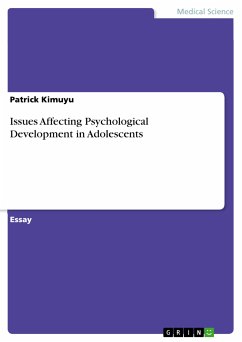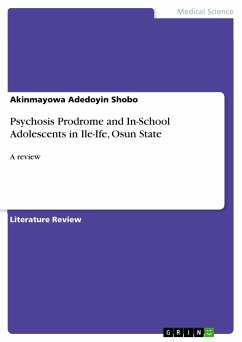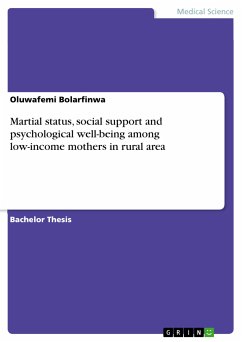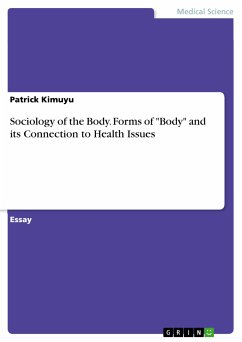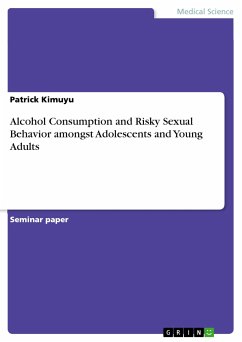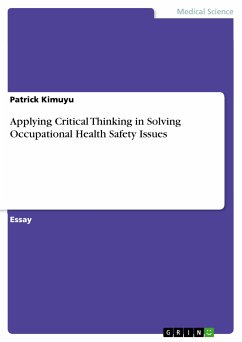Essay from the year 2018 in the subject Health - Public Health, grade: 2, Egerton University, language: English, abstract: Ordinarily, the adolescence stage of human development among teenagers is usually masked by an array of psychological issues especially with regard to personal responsibility and character formation. In most cases, adolescents are observed to develop anti-social behaviors such as juvenile delinquency, suicide and substance abuse. In addition, some adolescents become rebellious to authority, and they often y express identity issues. It is believed that the adolescence stage of human development is the most sensitive, especially with regard to health risks and identity formation crisis which may orient teenagers to unsafe social behavior, leading to social and health harm. From a psychological perspective, adolescent's psychological development is profoundly influenced by family, school and the social-cultural environment within which they grow in (Claiborne & Drewery 2009). Some of the most significant aspects of adolescent development, which are affected in the process of development, include biopsychosocial development, family disruption, self-esteem and cognitive abilities. In addition, psychological development among adolescents is faced with challenges in acquiring cognitive and social skills which are relevant in their ultimate social growth and mental health. It is believed that, the roles of the parents and family at large are fundamental in helping the adolescents to acquire appreciable social behavior for efficient advancement into the adulthood stage of development which requires a high level of social character, especially with regard to the societal norms and cultural customs. On the other hand, adolescents are exposed to numerous health threats, especially with regard to mental health, owing to their possible exposure to substance abuse and peer pressure. Therefore, this essay will focus on the psychological developmental issues related the adolescence stage of human development. It will give a comprehensive analysis of the adolescent's psychological development in both single and nuclear families, especially with regard to the teenage ability to assume different roles in the family. It will also highlight on health threats faced by adolescents during their development in their social-cultural environment in relation to developmental theory.
Dieser Download kann aus rechtlichen Gründen nur mit Rechnungsadresse in A, B, BG, CY, CZ, D, DK, EW, E, FIN, F, GR, HR, H, IRL, I, LT, L, LR, M, NL, PL, P, R, S, SLO, SK ausgeliefert werden.

